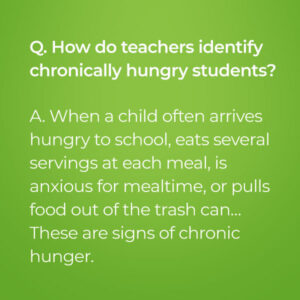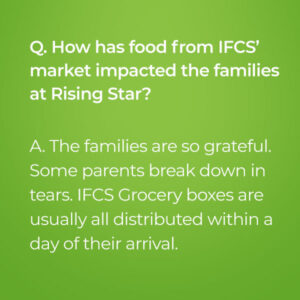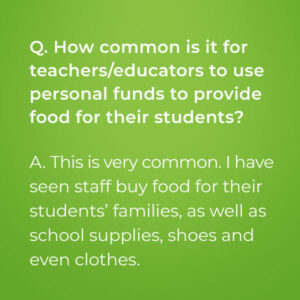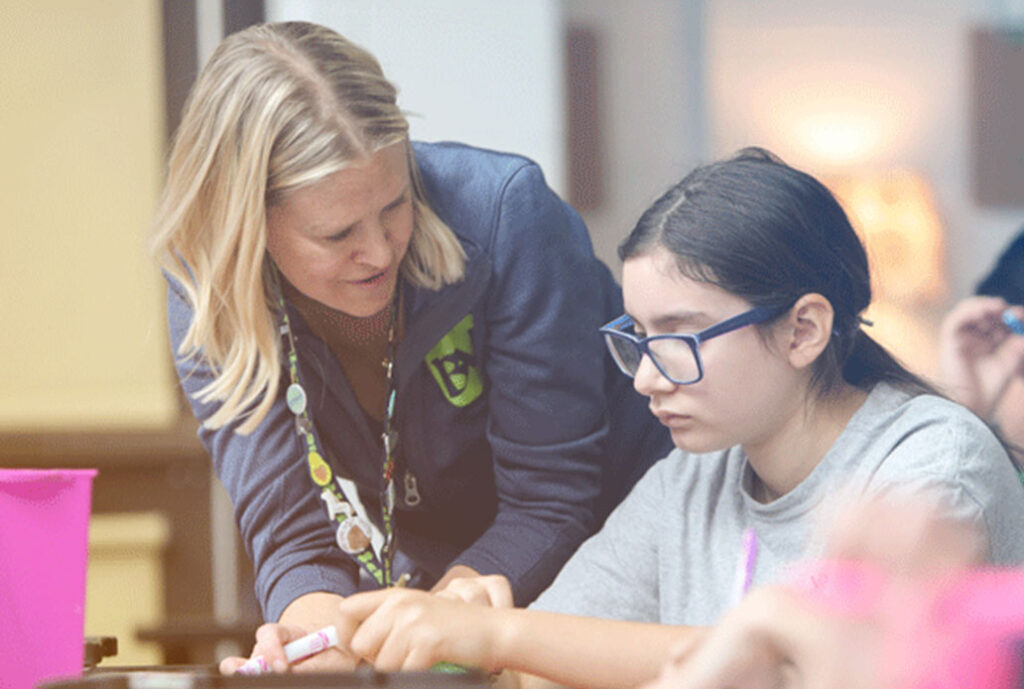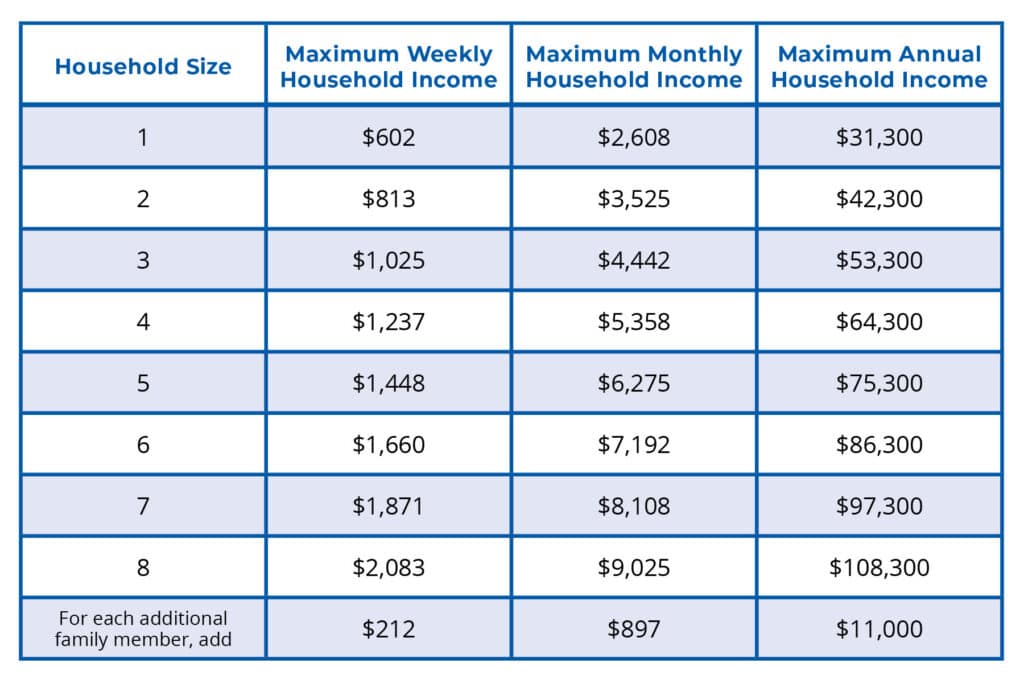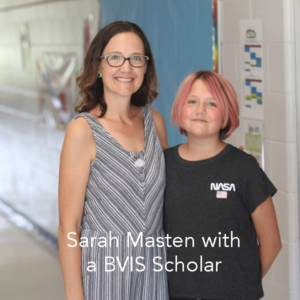 Children go to school to be educated, but when poor nutrition creates a barrier to learning, school staff must attend to much more than class lessons. Sarah Masten is Dean of Operations at Bear Valley International School (BVIS), a Denver middle school committed to providing a well-rounded, international learning curriculum that engages students and prepares them to enter high school with confidence. She and her staff see students every day who are not getting enough to eat. They also see the inevitable consequence: students whose hunger prevents them from engaging fully in their education. She tells us, “We find that, not only with food but also with water, if kids are not fully ‘nutritioned,’ their heads are on the table, they’re not engaged with their teacher, they tend to put their hoodies up; they don’t want to be seen because they just literally are lacking the energy to be engaged.”
Children go to school to be educated, but when poor nutrition creates a barrier to learning, school staff must attend to much more than class lessons. Sarah Masten is Dean of Operations at Bear Valley International School (BVIS), a Denver middle school committed to providing a well-rounded, international learning curriculum that engages students and prepares them to enter high school with confidence. She and her staff see students every day who are not getting enough to eat. They also see the inevitable consequence: students whose hunger prevents them from engaging fully in their education. She tells us, “We find that, not only with food but also with water, if kids are not fully ‘nutritioned,’ their heads are on the table, they’re not engaged with their teacher, they tend to put their hoodies up; they don’t want to be seen because they just literally are lacking the energy to be engaged.”
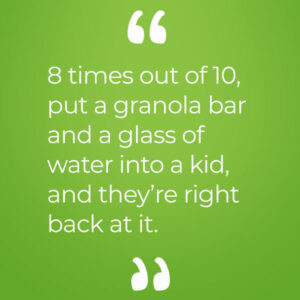 BVIS partnered with IFCS in May, just before the 2020-21 school year ended, to help provide food supplements for student families that are tight on finances. Masten expressed gratitude for the IFCS food boxes, which lately have included shelf-stable food items as well as fresh produce, some hygiene items like toilet paper or a toothbrush and, perhaps most importantly, culturally appropriate foods. “I could tell that the items that were in there would be things that our families would already have on their shopping lists,” she says. “It wasn’t things they would have looked at and said, ‘I don’t know how to cook that’ or ‘I don’t know what to do with that.’ There were a few items where I could tell they would respond as ‘Oh! I won’t need to buy that this week!’ or ‘This is a luxury that we don’t usually buy, but we can use it and I know how to use it!’”
BVIS partnered with IFCS in May, just before the 2020-21 school year ended, to help provide food supplements for student families that are tight on finances. Masten expressed gratitude for the IFCS food boxes, which lately have included shelf-stable food items as well as fresh produce, some hygiene items like toilet paper or a toothbrush and, perhaps most importantly, culturally appropriate foods. “I could tell that the items that were in there would be things that our families would already have on their shopping lists,” she says. “It wasn’t things they would have looked at and said, ‘I don’t know how to cook that’ or ‘I don’t know what to do with that.’ There were a few items where I could tell they would respond as ‘Oh! I won’t need to buy that this week!’ or ‘This is a luxury that we don’t usually buy, but we can use it and I know how to use it!’”

Families experience various levels of food insecurity, but no matter the level of need, accepting food support typically has barriers of its own. “Taking a donation is really hard… but to be able to open a box and not be intimidated by the contents, to know that these are things that they truly would use, is… so impactful,” Masten explains. When culturally appropriate items are readily accessible, families feel that they matter, that their unique needs are understood, and they are more willing to accept the food. According to Masten, “They will remember the contents of that box… and will be more apt to accept food support that provides nutrition for their families in a way that truly helps them.”
BVIS and IFCS have also collaborated to offer support for students needing school supplies. When the COVID-19 pandemic hit, students could no longer leave class materials in their lockers. They were required to carry Chromebooks home in case of a sudden switch to virtual learning, and staff quickly learned that not all students had access to a backpack or even a water bottle. Thanks to those in our community who sponsored students through IFCS’ Ready, Set, School! program, some of the BVIS students are now prepared to attend school.
Q & A with Dania Kasim, Managing Director of Rising Star Early Learning Center (Preschool in Sheridan)
